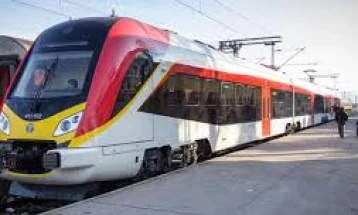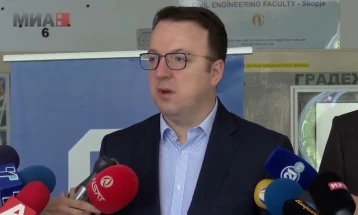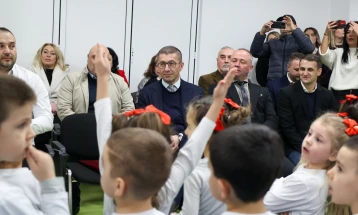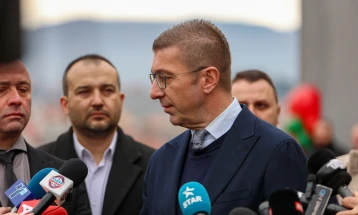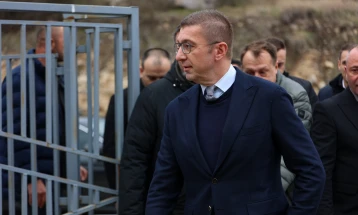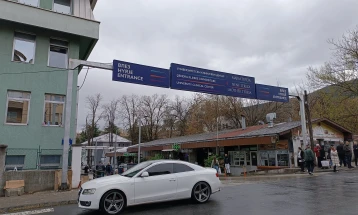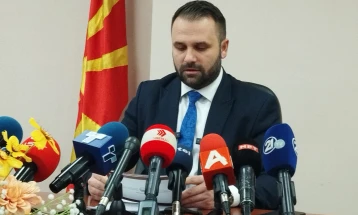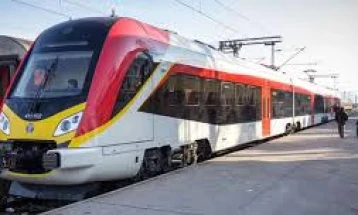Green transition no longer choice, but necessity for Western Balkan countries: conference
- Representatives from the region and the EU participated in Friday's conference "Advancing the Green Infrastructure in the Western Balkans" organized by the Institute for Good Governance and Policies in Environment and Climate Change - IPECC Skopje, which seeks to promote green investments by integrating them into environmental strategies.
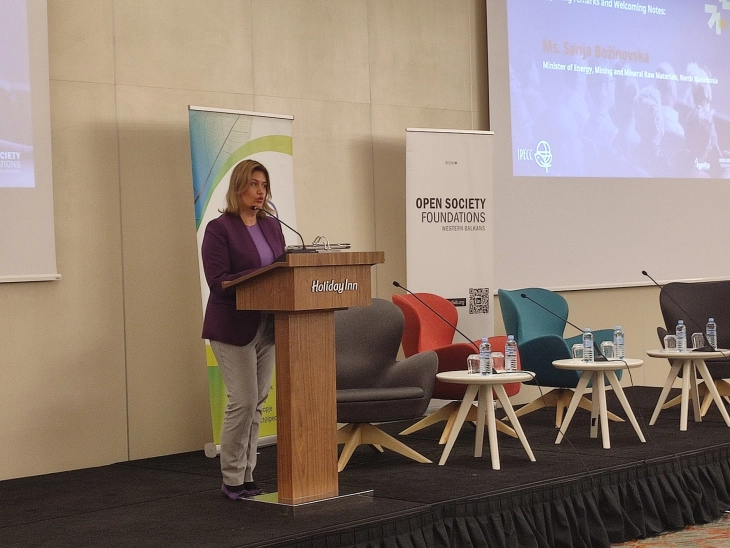
Skopje, 16 May 2025 (MIA) - Representatives from the region and the EU participated in Friday's conference "Advancing the Green Infrastructure in the Western Balkans" organized by the Institute for Good Governance and Policies in Environment and Climate Change - IPECC Skopje, which seeks to promote green investments by integrating them into environmental strategies.
Minister of Environment and Physical Planning, Izet Mexhiti, and Minister of Energy, Mining and Mineral Resources, Sanja Bozhinovska, delivered opening remarks, pointing out that green transition is no longer a choice, but a necessity for the Western Balkan countries, as well as a key part of the path towards full-fledged membership in the European Union.
First Deputy PM and Minister of Environment and Physical Planning, Izet Mexhiti, said the importance of building sustainable infrastructure is a global challenge that requires collective action, vision and cooperation. According to him, the way infrastructure projects are shaped directly affects the quality of life, economic stability, environmental protection and the resilience of communities to climate change.
"Strategic investments in infrastructure with climate risks and biodiversity aspects into account are a powerful tool in accelerating economic development, creating new green jobs, fostering innovation and meeting the Sustainable Development Goals by 2030," said Mexhiti.
He pointed to the importance of integrating climate and environmental aspects into the planning and environmental impact assessment process, adding that it enables informed and long-term sustainable decision-making.

"Infrastructure that is resilient to climate shocks not only protects the budget and public resources, but contributes to stability and security for future generations. Steps that need to be taken include building and adapting risk management systems that will prepare us for climate challenges, transforming the energy sector towards renewable sources, modernizing agriculture through efficient irrigation systems and climate smart practices, and promoting the energy efficiency and seismic resilience of buildings," said the First Deputy PM and Environment Minister.
Minister of Energy, Mining and Mineral Resources, Sanja Bozhinovska, pointed out that green infrastructure and ways to promote it is one of the most important topics for the future of the region.
"At a time when climate challenges do not allow for any delay, green transition is no longer a choice but a necessity, and for the Western Balkan countries it is also a key part of the path to full-fledged EU membership. The energy, mining and mineral resources sectors, often perceived as heavy industry, must be transformed into drivers of sustainability. This means integrating renewable energy sources, responsible mining management, investments in infrastructure that is green, resilient and sustainable in the long-run," said Bozhinovska.
According to her, it is crucial to increase the capacity of our institutions to plan, implement and absorb the funds that "the EU is already making available, especially through the mechanisms of IPA 3 and the future financial perspective after 2027".
"We must jointly overcome the obstacles that have so far slowed down the use of funds. How can we cooperate better regionally because together we are stronger and more successful in applying for funds and in the implementation of projects of transnational importance. We need strategic readiness, institutional coordination and vision. Only in this way can the gap between plans and implementation be closed, and a real, tangible change be ensured for our citizens," the Energy Minister noted.
Friday's IPECC conference was supported by the Open Society Foundations – Western Balkans, whose program director, Adrijana Lavchiska, said this initiative is part of their broader regional platform of civil society and think tank organizations from the Western Balkans. According to her, they work together on various topics, including this one, “so that the voice of the Western Balkans can be heard in the European Union”.

She pointed out that work is underway on a portfolio for a just energy transition, covering multiple topics - from installing solar photovoltaics on school roofs, to establishing regional priorities and participatory climate policies that are based on the needs of citizens and local communities.
"The vision we have for our societies is for them to be inclusive, sustainable, democratic and just ... For us, green infrastructure is not just technical, it is political, strategic and it should be civic. Green infrastructure is not just building roads or gas pipelines and other infrastructure facilities, but also building trust, resilience and represents an opportunity for the Western Balkans to become part of the European Union," Lavchiska said.
Photo: MIA
